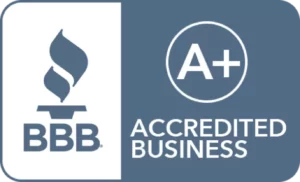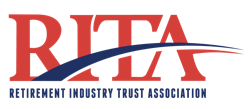Important Self-Directed IRA Rules
If you don’t feel confident making traditional investments, such as stocks and mutual funds, you can establish a Self-Directed retirement plan with a passive custodian. A Self-Directed plan, like the Self-Directed IRA, gives retirement investors the ability to invest in a variety of asset classes. This includes real estate, precious metals, tax liens, cryptocurrencies and more. As an IRA or 401(k) investor, you still have the option of using your funds to make traditional investments, but can now invest in assets otherwise not presented to you.
With new investment opportunities comes new rules. There are a number of important self-directed IRA rules to be aware of, but two of the most important rules when using an IRA are:
- Unrelated Business Taxable Income (UBIT or UBTI) rules when triggering the UDFI tax
- Prohibited Transaction Rules – a phrase that describes a broad list of rules investors must adhere to avoid tax and/or penalties
Passive Custodian
Before we get into the two most important self-directed IRA rules and what they mean, let’s describe why investors should establish a self-directed retirement plan with a passive custodian. By law, an IRA must be established or administered by one of three institutions:
- A bank
- Financial Institution
- Authorized Trust Company
Why should IRA investors avoid using any institution that is not an authorized trust company? Most banks and financial institutions that offer retirement accounts only allow their clients to invest in products and services they sell, which are limited to traditional assets. These institutions do not make money when you use your retirement funds to make real estate, cryptocurrency or other alternative asset investments. As you can see, it will not be financially feasible for these institutions to suggest you spend money on alternative investments.
However, a Self-Directed IRA custodian, or passive custodian, does not earn money on what investments their clients decide to make because they do not sell investment products or advisory services. The responsibility of the passive custodian is to facilitate non-prohibited investments that the IRA holder (you) directs.
By establishing your self-directed IRA with a passive custodian, you ultimately gain more flexibility and control over your retirement future.
UDFI Tax
Now let’s get into the two most important Self-Directed IRA rules.
There’s a tax that very few people know about because most of us do not experience it. This tax is known as the Unrelated Debt Financed Income (UDFI) tax, which is part of the UBTI/UBIT family. The only allowable loan with a Self-Directed IRA is a nonrecourse loan – the borrower is not personally liable for this loan.
When you use nonrecourse leverage, the debt-financed portion of the investment will trigger the UBTI tax if the property produces income. The Unrelated Business Tax rate is 37%.
Even if you purchase the property with a Self-Directed Roth IRA, the UDFI tax will still apply. The way that you can avoid this is if you purchase the property using funds from a Solo 401(k) retirement plan, which is not subject to the UDFI tax. However, you must meet the eligibility requirements in order to establish this plan.
Prohibited Transaction Rules
The IRC (Internal Revenue Code) does not say what investors can do with their retirement accounts. As new investments emerge, the tax code must be frequently updated. Instead, the IRC simplifies the rules by stating what investments you cannot make. There are two asset investments that you cannot buy with your retirement plan:
- Life Insurance
- Collectibles
Under IRC section 4975, it also states transactions you cannot make with certain people, known as disqualified persons. The IRS restricts certain transactions between the IRA and a “disqualified person.” Transactions with certain parties are inherently suspicious, therefore, not allowed. Disqualified persons include you (IRA holder), spouse, lineal descendants (grandparents, parents, children) and entities in which the disqualified persons own a controlling equity or management interest.
The Self-Directed IRA is a great way to diversify your retirement portfolio and begin investing in assets you trust and understand better than Wall Street. By understanding the rules, you can prevent surprise taxes, as well as triggering a prohibited transaction, which can result in penalties and the disqualification of your IRA.
Self-Directed IRA for Investing
The Self-Directed IRA is a secure and cost-effective solution for IRA holders who want to use retirement funds for investing. Get started on the road to retirement freedom – contact IRA Financial Trust at 800-472-1043 or fill out the form to speak with a tax specialist.











